April 14, 2025 | 10:10 GMT +7
April 14, 2025 | 10:10 GMT +7
Hotline: 0913.378.918
April 14, 2025 | 10:10 GMT +7
Hotline: 0913.378.918
In a recent visit to the Alliance of Bioversity and the International Center for Tropical Agriculture (CIAT), Camila Maria Polo Flórez, Ambassador of Colombia to Vietnam, highlighted the significance of agriculture as a cornerstone of the Colombian economy, mirroring its importance in Vietnam and many other nations.
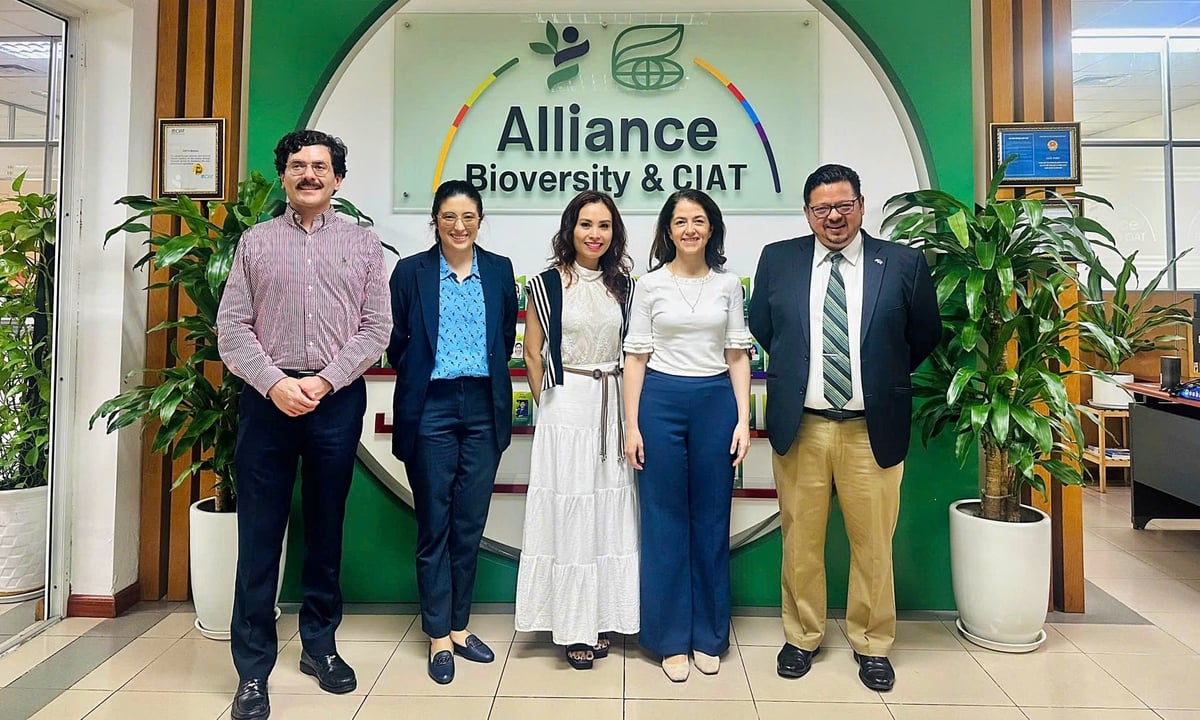
Ms. Camila Maria Polo Florez (second from right), Ambassador of Colombia to Vietnam, visits the CIAT headquarters. Photo: Linh Linh.
Beyond its fundamental role in food production, agriculture remains a primary source of livelihood for millions of smallholder farmers and rural producers. “Colombia’s current economic growth and export resilience, beyond traditional fossil fuel sectors, are largely contingent on the agricultural industry,” the ambassador stated.
She further emphasised that food production should no longer be viewed in isolation but as part of a broader, interconnected food system that demands a comprehensive approach in which food environment plays an important element, integrating environmental considerations alongside agricultural development.
Colombia has pledged to be at the forefront of global efforts to combat climate change. In pursuit of this objective, the country recognises the value of indigenous knowledge, leveraging it as an essential asset in biodiversity conservation and environmental protection.
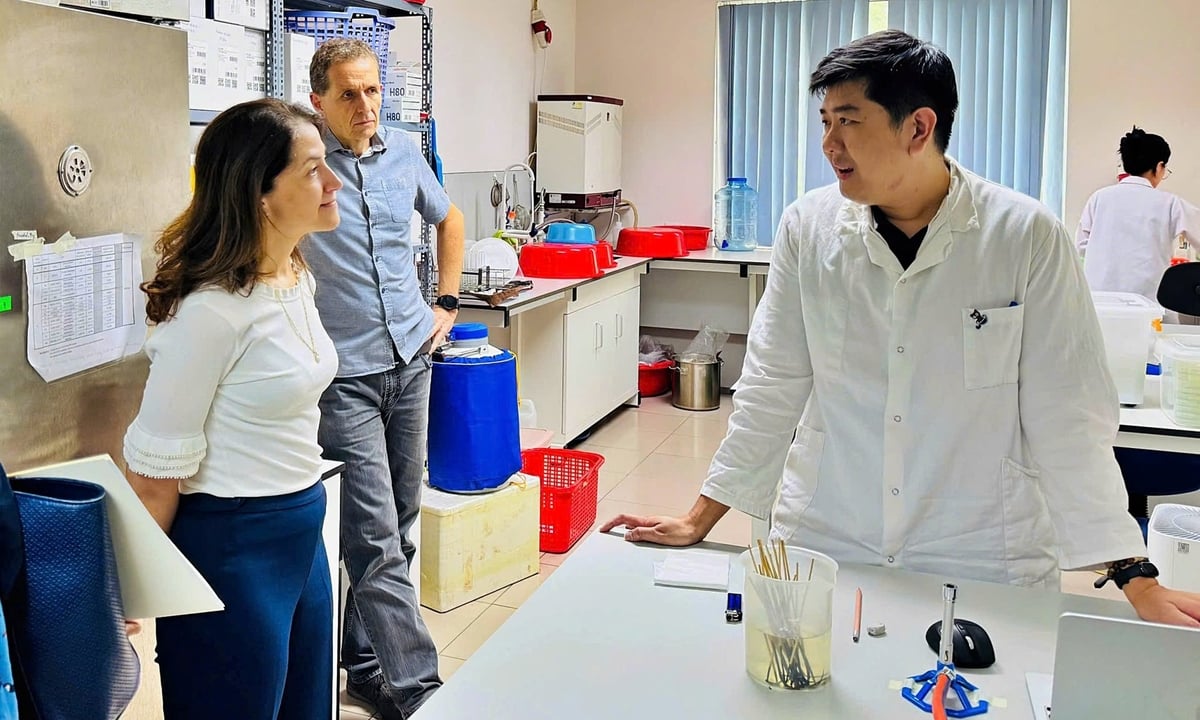
Ambassador Camila highly appreciated the enthusiasm and scientific research spirit of CIAT staff. Photo: Linh Linh.
Echoing the key message of last year’s Biodiversity Summit, Camila stressed the imperative that “humanity must learn to coexist harmoniously with nature.” Given Colombia’s exceptional biodiversity, she reiterated the country’s responsibility in safeguarding ecological health.
The ambassador’s visit to CIAT reaffirmed her confidence in the pivotal role of scientific research in informing evidence-based policymaking. She underscored that it is the duty of governments to foster and support such research endeavours. “Effective policies must be underpinned by rigorous scientific foundations,” she asserted.
In a briefing to the ambassador, Dr Ricardo Hernandez, CIAT’s Country Representative in Vietnam, outlined the organisation’s collaborative efforts with numerous partners to enhance agricultural competitiveness, profitability, and resilience. CIAT achieves this through research on sustainable and intelligent management of natural resources.
Since relocating its Asia Regional Office from Laos to Vietnam in 2010, CIAT has pioneered transformative solutions for agricultural and food systems, addressing the intersection of agriculture, environmental sustainability, and nutrition.
Aligning with Vietnam’s National Action Plan for a Transparent, Responsible, and Sustainable Food System (NAP-FST) (Decision No. 300/2023/QĐ-TTg), CIAT’s initiatives through a close collaboration with national partners focus on research related to inclusive food environment, sustainable healthy diets, and food systems governance and policy, for technical support on food systems policy, institutional improvement and capacity development, fostering collaboration, and enhancing efforts at both national and sub-national levels to implement the NAP-FST effectively. CIAT is well recognized by Ministry of Agriculture and Environment for its contribution to food systems transformation in Vietnam.
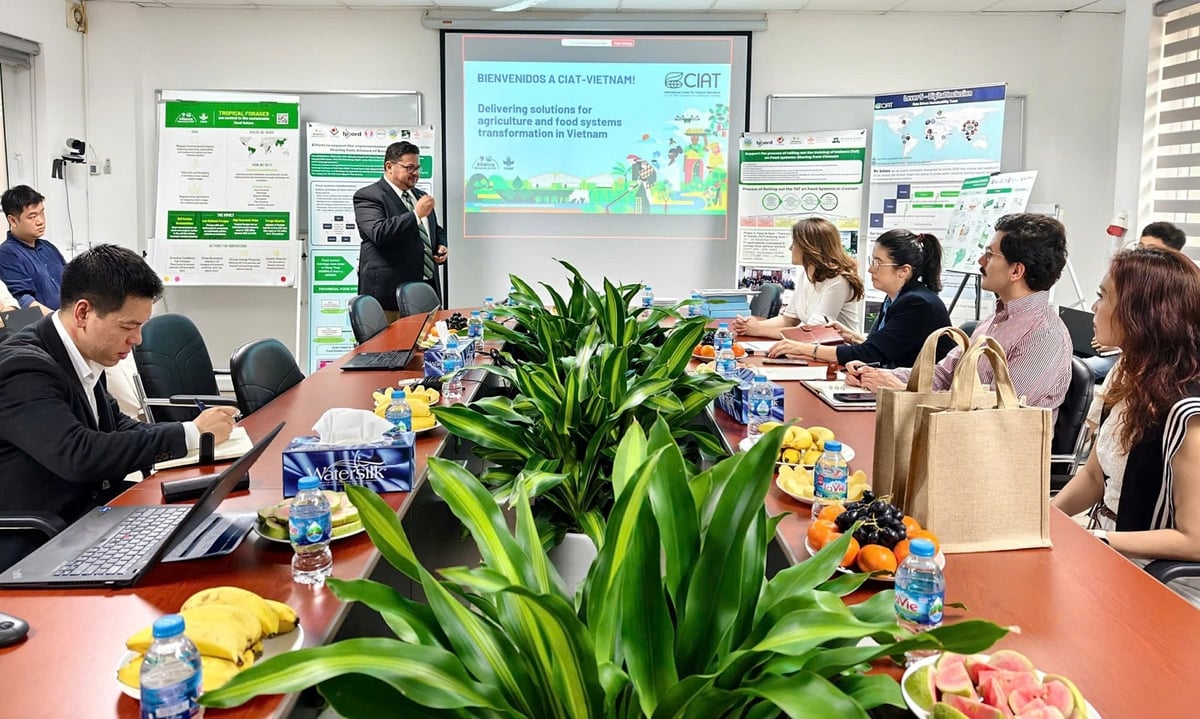
Dr. Ricardo Hernandez presented the key research topics of CIAT. Photo: Bao Thang.
A key priority is ensuring equitable access to safe and nutritious food by investigating factors influencing food and nutrition security across both rural and urban landscapes. CIAT’s research extends to high-value crops and livestock, integrating pest surveillance, enhanced animal feed formulations, and improved planting materials to bolster productivity.
Furthermore, CIAT is actively engaged in soil restoration initiatives, conducting microbiome research and monitoring deforestation driven by agricultural expansion. “We support farmers and local stakeholders in adhering to global sustainability standards, safeguarding deforestation-free supply chains in cassava, coffee, and other agroforestry systems,” Dr Hernandez explained.
In 2024, CIAT was recognised by the Vietnamese government for its climate-related recommendations, which featured in the Agrometeorological Bulletin. These insights assisted over 277,000 farmers in adopting climate-resilient agricultural practices and mitigating risks in the Mekong Delta.
Looking ahead, over the next decade, CIAT aims to scale up its impact by implementing research on innovative solutions that enhance the resilience of Southeast Asia’s agricultural and food systems against climate change. Additionally, the organisation remains committed to improving sustainable livelihoods for farmers and stakeholders across agricultural value chains.
CIAT’s research also extends to developing affordable, nutritious, and environmentally sustainable food solutions, further contributing to biodiversity conservation and climate adaptation efforts.
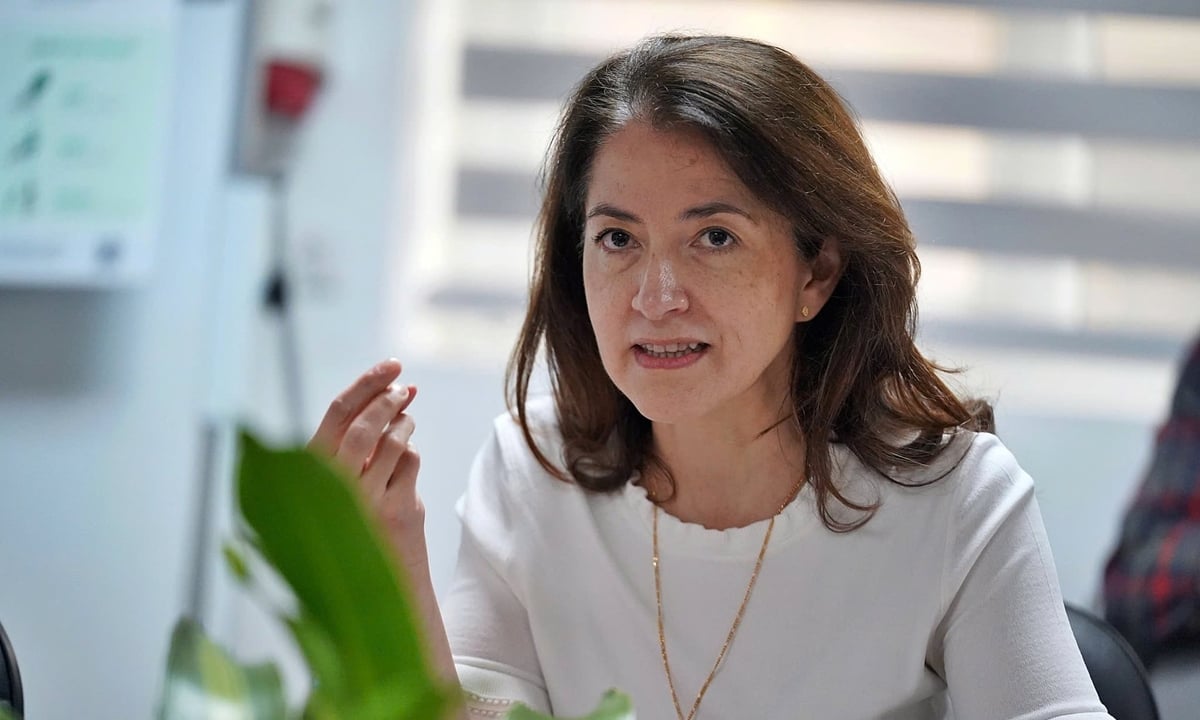
Ambassador Camila expressed her desire to learn from Vietnam’s agricultural development experiences. Photo: Bao Thang.
Following presentations by CIAT’s research teams on food system transformation, climate adaptation strategies, and agricultural innovation, Camila acknowledged the relevance of these topics to Colombia’s agricultural development strategy. She noted that Colombia—spanning over 1.1 million square kilometres—is actively embracing digital transformation and artificial intelligence to drive sustainable agricultural practices.
As one of the world’s leading producers of Arabica coffee, Colombia is globally renowned for its superior-quality beans and distinctive flavour profile. The country is also a major exporter of bananas, palm oil, sugarcane, and cocoa.
However, like many developing economies, Colombia’s agricultural sector faces significant challenges stemming from climate change, an overreliance on raw commodity exports, and insufficient infrastructure for mechanisation and value-added processing. High logistics and transportation costs further constrain Colombia’s competitiveness in global markets.
Recognising these structural limitations, the Colombian government is prioritising organic farming expansion, particularly through sustainable coffee production models. Concurrently, national efforts are underway to combat deforestation, strengthen food security, and preserve biodiversity.
Since assuming office in early 2025, Camila has expressed deep admiration for Vietnam’s agricultural expertise, viewing it as an invaluable reference—especially in the domain of rice production. “Rice cultivation was once a key pillar of Colombia’s economy, yet the sector has struggled in the face of external competition and domestic inefficiencies,” she remarked.
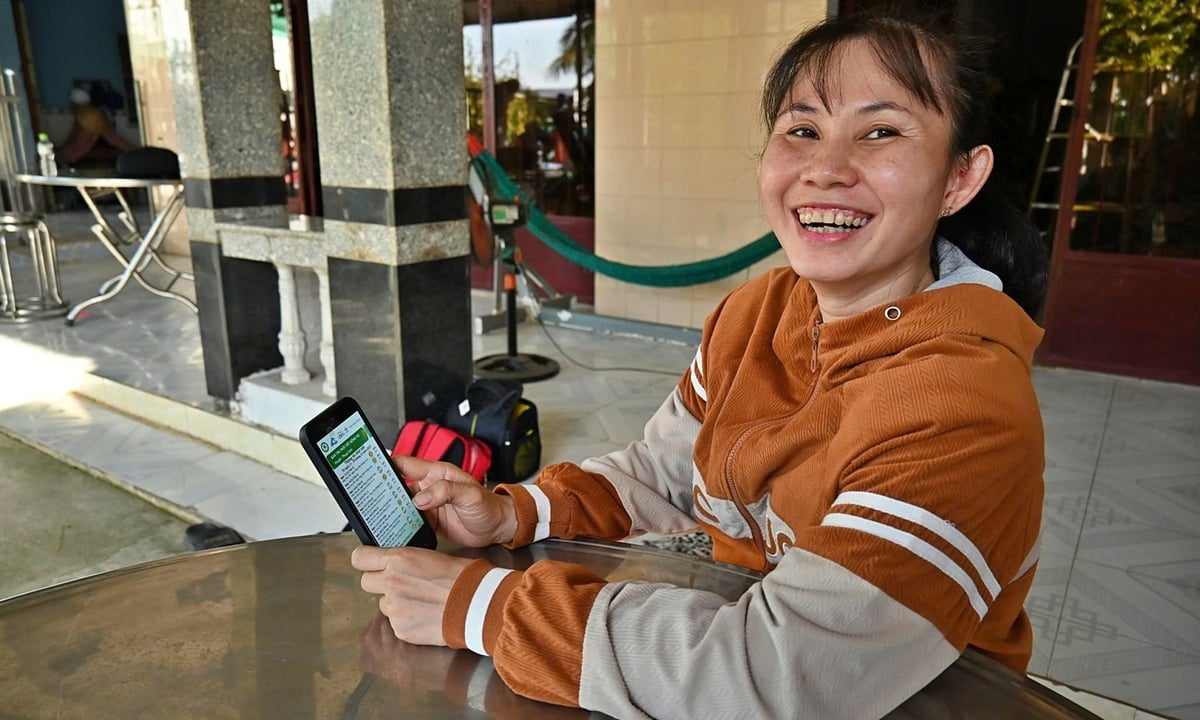
The Agricultural Weather Bulletin, a product jointly produced by CIAT, has gained significant traction in the Mekong Delta region. Photo: Linh Linh.
In light of this, the Colombian government is committed to revitalising the rice industry, and the Colombian Embassy in Vietnam seeks to engage with Vietnamese experts to explore viable technological and policy adaptations suited to Colombia’s unique geographical and ecological context.
Another focal area for bilateral cooperation is cashew cultivation. Colombia’s climatic conditions are conducive to the cultivation of cashew nuts, a high-value commodity in which Vietnam holds a dominant position in the global market. Through collaborative efforts and knowledge exchange, Camila hopes to identify suitable regions within Colombia for piloting cashew production—an industry projected to reach a global market value of USD 8 billion by 2025.
Throughout her engagements, Camila has identified numerous synergies between Colombia and Vietnam, spanning shared challenges, mutual opportunities, and untapped partnership potential—particularly in research collaborations, intergovernmental cooperation, academic exchange, and private-sector investment. She emphasised that agricultural and food system development cannot be realised without robust private-sector participation.
Reaffirming her support for CIAT, Camila stressed the strategic importance of food system innovation for sustainable transformation as a fundamental pillar in Colombia’s agricultural reform agenda.
Translated by Dieu Linh

(VAN) According to Deputy Prime Minister Bui Thanh Son, through this P4G Summit, Vietnam aims to convey the message of transforming its growth model towards rapid and sustainable development.
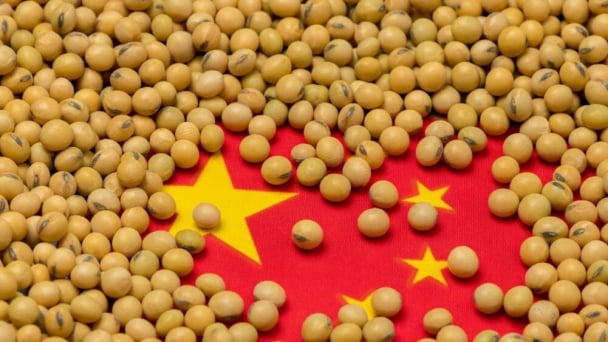
(VAN) Soybean production has been a priority for China to ensure food security, with increased soybean cultivation and yields highlighted in the annual No. 1 Central document.

(VAN) Vietnam Sea and Islands Week 2025 is expected to take place in Quang Binh, featuring a series of meaningful activities aimed at protecting the ocean through green technology solutions.
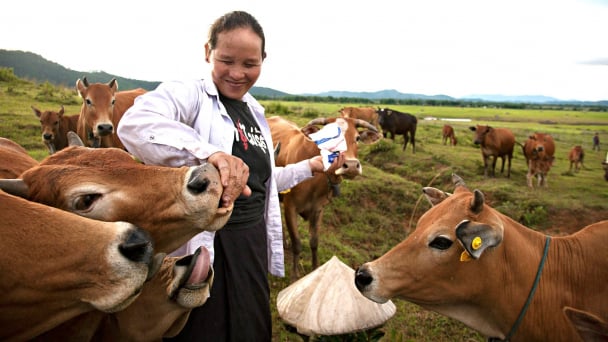
(VAN) The One Health approach is no longer merely an option, as increasingly complex challenges confront health and food systems.
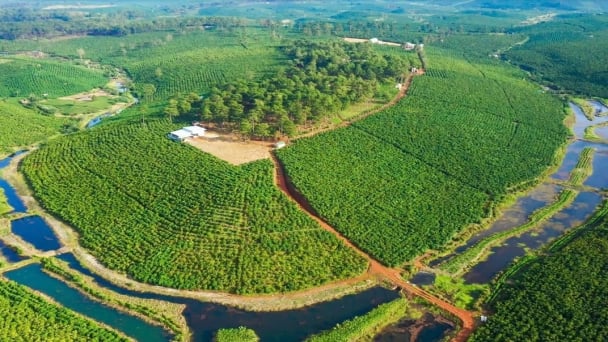
(VAN) The project promoting sustainable coffee production, with a focus on waste management and raising farmers’ awareness, has achieved many positive results after nearly two years of implementation.
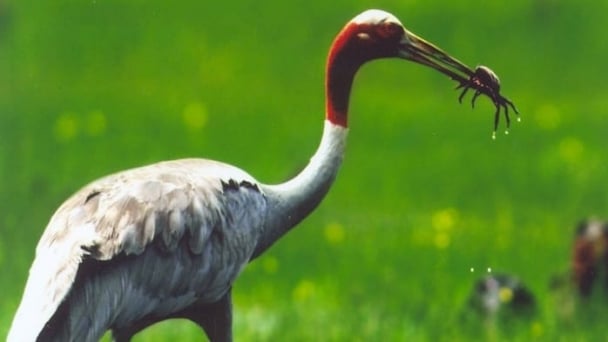
(VAN) Transferring and receiving 6 individuals of the red-crowned crane from Thailand to Vietnam marks a significant milestone in the conservation efforts for this species.
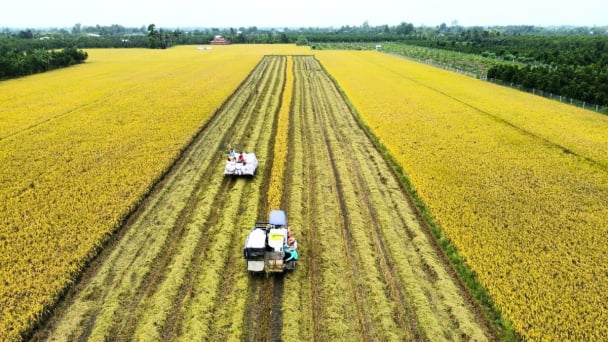
(VAN) After more than a year of implementation, the One Million Hectares of High-Quality, Low-Emission Rice project has completed the first steps, but it needs breakthrough solutions to deepen impacts in the upcoming phase.